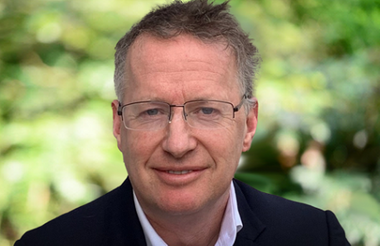Charity Commission chair Orlando Fraser has criticised “unfounded complaints” made to the regulator about “the alleged non-charitable nature” of some think tanks’ research.
Writing in the Times today, he said “some have sought to weaponise the Charity Commission as regulator in campaigns against think tanks with whom they disagree”.
Fraser wrote that think tanks are critical to the political ecosystem, adding: “It is because of the important role of think tanks in informing debate and educating the public that many of them hold charitable status in England and Wales.
“Yet the nature of these charities is too often called into question.
“Some argue that think tanks are inherently political organisations and, accordingly, do not deserve the benefits that charitable status brings. I disagree.”
The Commission chair emphasised that like any charity, think tanks are free to engage in political activity where doing so supports their charitable objects.
He wrote: “I want to be clear that, as long as a think tank is not endorsing political parties or undertaking inappropriate political activity, the Commission has no interest in stifling their work, and thus will rarely intervene when allegations of political bias are made.”
Fraser said the regulator expects think tanks’ research to be open-minded and their conclusions not to be predetermined.
But he said the regulator is unlikely to consider that a progressive think tank is in breach of charity law by the fact that it may favour left-of-centre solutions, and likewise with others elsewhere on the political spectrum.
He said it is also not a regulatory matter if a charity think tank’s employees move to a government position, or vice versa.
Fraser’s piece concludes: “I hope that charity think tanks can continue the work they do unhindered by unfounded complaints made to the Commission about the alleged non-charitable nature of their work – and continue to be the valuable part of our democracy that they are trusted to be.”
Funding transparency for think tanks
In a joint Institute for Government and Charity Commission event today, chaired by Lord O'Donnell, Fraser also clarified that a regulatory alert issued in 2018 no longer stands.
Fraser said the 2018 alert was made by the regulator at a “pretty frebrile time” and “is no longer effective”.
On a question around donor transparency, the Commission chair added trustees can publish a list of donors, though this is voluntary.
Polly Curtis, chief executive of Demos, said her think tank would be “comfortable” with law change around having to publish funding sources, as her organisation already does.
Curtis said it was a “great relief” to hear the Commission speak on this area and added “politics is our method not our cause” and that reassurance already exists in the legislation.
Hannah White, director of the Institute for Government, said the think tank tells donors “there can be no influence, or perception of influence over what we might say”.
White added political activity “is all squarely within out charitable aims” though think tanks have to be mindful about perception.
She said arguing for change is not necessairly about the party in power, it can be about a larger system. Indeed, it is the “ability to think big, and beyond where the poltical system is”.
Andy Cook, chief executive of the Centre for Social Justice said funders cannot be involved in the policy process.
Related Articles












